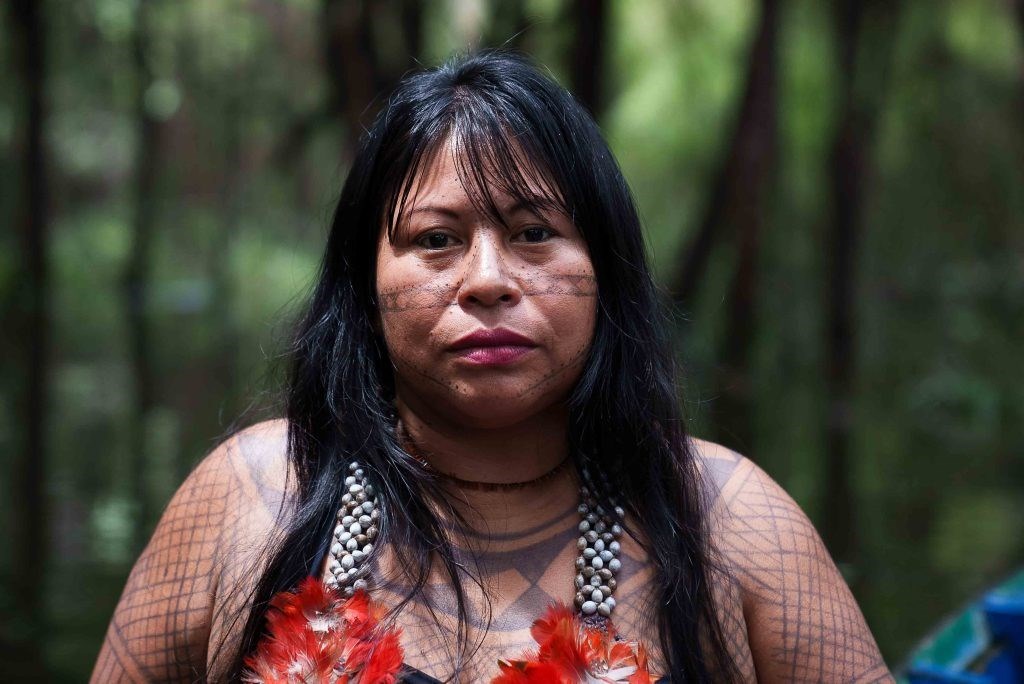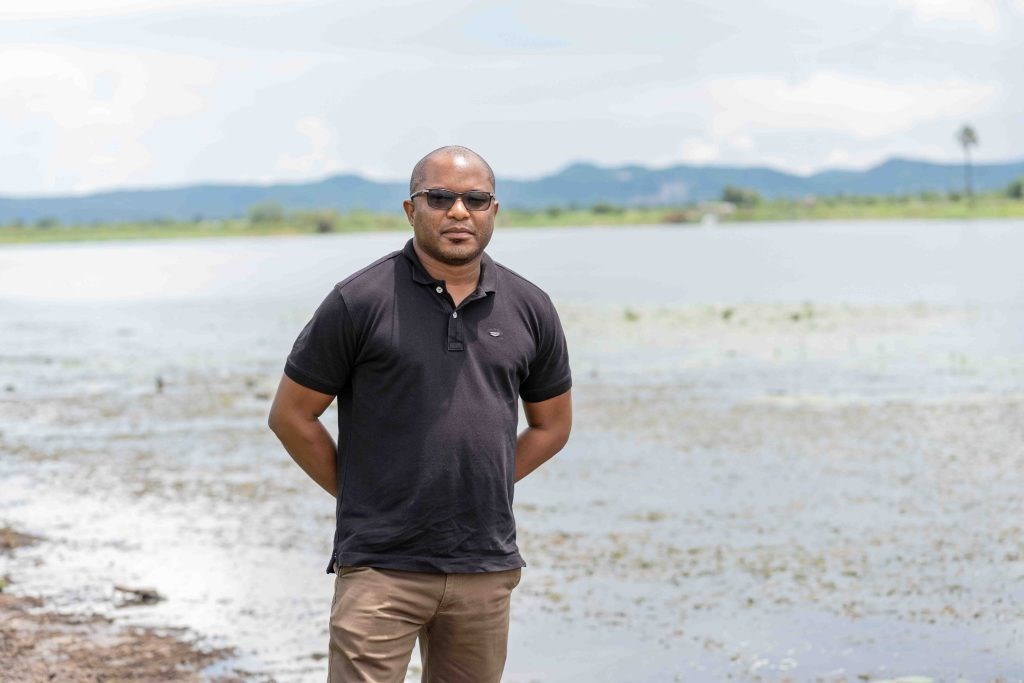The winners of the 2023 Goldman Environmental Prize have been announced, celebrating six grassroots climate activists from across the globe.
About The Goldman Environmental Prize:
The Goldman Environmental Prize was founded in 1989 by Richard and Rhoda Goldman, as they wanted to reward activists and inspire others to join the fight for climate justice. The prize, “honors the achievements and leadership of grassroots environmental activists from around the world, inspiring all of us to take action to protect our planet.” By “grassroots,” they mean, “those involved in local efforts, where positive change is created through community or citizen participation.”
The winners are announced at a live award ceremony, which coincides with Earth Day each year. Due to restrictions in place because of the pandemic in recent years, the award ceremony has been hosted virtually. However, under normal circumstances, the ceremony is held at the San Francisco Opera House in San Francisco, California. There is also a smaller, more intimate ceremony for the winners only, which is held in Washington D.C. At the winner’s ceremony, they are presented with a bronze sculpture of an Ouroboros, a serpent biting its tail; in many cultures, the ouroboros is a symbol of nature’s power of renewal.
To date, The Goldman Environmental Prize have honored 219 environmental activists, from 95 different countries. To see the previous winners of the award, click here.
The 2023 Winners:
The six winners of 2023 are Zafer Kizilkaya of Turkey, Alessandra Korap Munduruku of Brazil, Chilekwa Mumba of Zambia, Tero Mustonen of Finland, Delima Silalahi of Indonesia, and Diane Wilson from the United States.
To read about each of the winners’ incredible work, click here.
 Alessandra Korap MundurukuThe Goldman Environmental Prize, with permission
Alessandra Korap MundurukuThe Goldman Environmental Prize, with permission
Alessandra Korap Munduruku, Brazil
Alessandra Korap Munduruku, one of the 2023 winners, was awarded for her efforts in organizing efforts in her community to prevent British mining company, Anglo American’s mining in parts of Brazil’s Amazon Rainforest. From 2005 to 2015, mining caused the deforestation of almost 3 million acres in Brazil. Between 2018 and 2021, the rates of deforestation due to mining in the Amazon Rainforest increased by 62%.
In the state of Para, Northern Brazil, the Sawré Muybu Indigenous Territory is home to several communities of Munduruku people and contains approximately 439,000 acres of Amazon Rainforest. Despite this, however, the territory is not formally recognized or protected by the Brazilian Government. This has left the territory, and those who inhabit it, under threat of mining for years. A report published in 2020 revealed that Anglo American alone had 13 applications to mine in Munduruku territory.
Alessandra Korap Munduruku is a member of Sawré Muybu Indigenous Territory and is also the President of the Pariri Indigenous Association, which supports communities in the Tapajós River region. She was the first ever woman coordinator of the association. In 2018, she was working as a teacher, but decided to pursue a degree in law to enable her to better protect the community. She began by drafting a campaign strategy and organizing fundraising efforts to tackle the mining company and rid the territory of the applications to mine.
In December of 2020, 45 chiefs and 200 participants (including Korap Munduruku) drafted and published an official declaration against mining, which was quickly disputed by Anglo American. They claimed to have no permits in Indigenous territories, though they did not rule out the possibility of future permits in their statement. Alessandra Korap Munduruku responded, “We are here, and we will continue here. Anglo American out! The people will continue to resist.”
By May 2021, Anglo American announced its commitment to withdraw 27 approved permits in Indigenous territories. A year later, a survey run by the Brazilian Mining Association revealed that none of the 130 companies had any current mining applications in Indigenous territories.
Alessandra Korap Munduruku coordinated the efforts of a community to tackle the threat that mining posed to their livelihoods. The work she coordinated was imperative in protecting both the environment and the community to which she belongs.
 Chilekwa Mumba The Goldman Environmental Prize, with permission
Chilekwa Mumba The Goldman Environmental Prize, with permission
Chilekwa Mumba, Zambia
Chilekwa Mumba, another of the six winners this year, organized a lawsuit against Vedanta Resources (a U.K.-Indian diversified mining company) for their mining operation, Konkola Copper Mines, in the Copperbelt Province of Zambia.
Zambia is one of the largest producers and exporters of copper in Africa. The Konkola Copper Mines (KCM), a subsidiary of Vedanta Resources, is one of the largest operations Zambia and is the country’s single largest employer. The KCM operation spans 11 square miles along the Kafue River and was acquired by Vedanta Resources in 2004.
Once Vedanta Resources took over the operation, residents of Shimulala, Kakosa, Hippo Pool and Hellen, all areas surrounding the river, noticed significant levels of contamination in the river. Locals in these areas had relied on the river for drinking, bathing, crops and livestock. The water started to smell and the river’s fish started to die. In 2006, the water turned bright blue due to high levels of copper sulphate and acid; then in 2011, a letter penned by a doctor stated that the water in the river and local aquifers was unsafe for human consumption. The health of the residents suffered as a result, experiencing headaches, nosebleeds, abdominal pain, rashes, and burns.
Residents collectively took KMC to court over the damage in 2006, but were unsuccessful.
In 2015, 38-year-old Chilekwa Mumba, a resident of the Copperbelt Province who ran an orphanage with his wife, decided to take action. He reached out to a U.K. law firm, Leigh Day, and persuaded them to take the case, despite no U.K. parent company of such operations ever being held liable for damages caused by one of their subsidiaries.
Mumba acted as a facilitator between the local residents and lawyers at Leigh Day, organising meetings, translating materials, gathering water samples, finding witnesses, and even persuading a number of the residents to give blood samples to aid the case. In the years that the case was being built, Mumba reassured the residents and kept morale high, even though the process was long and difficult.
In 2019, the U.K. Supreme Court found that Vedanta Resources had a duty of care for the residents, and the company settled with nearly 2,000 villagers. Since then, spills and discharges from the mine have stopped, and a new legal precedent has been set in the U.K. The ruling changed decades of corporate immunity and now, other parent companies are finally being held accountable for damages caused by their subsidiaries’ operations overseas.
Chilekwa Mumba not only protected the Kafue River and the residents in the surrounding areas but caused a significant shift in the way that corporate giants are allowed to operate across the globe. His perseverance and endurance in the long years it took to build the case will benefit not just his own community, but communities just like it, all over the world.
Other Winners
All six of the winners of the Goldman Environmental Prize this year are inspirational leaders and activists that are helping to protect the environment, one part at a time. They are proof of the significant differences that can be made when people band together and fight for a better world.
To read about each of the winners, click here.
To watch the 2023 Goldman Environmental Prize Awards Ceremony, click here.
MY HERO Media Award 2021
In 2021, The MY HERO Project announced that the Goldman Environmental Prize, was to be awarded the 2021 MY HERO Media Award at the 17th Annual International Film Festival. The Media award is given to groups or individuals who use media to create positive change in the world, which the Goldman Environmental Prize is doing on a significant scale.
To read more about the MY HERO Media Award in 2021, click here.
Page created on 5/31/2023 11:50:27 AM
Last edited 6/28/2023 4:41:54 PM
